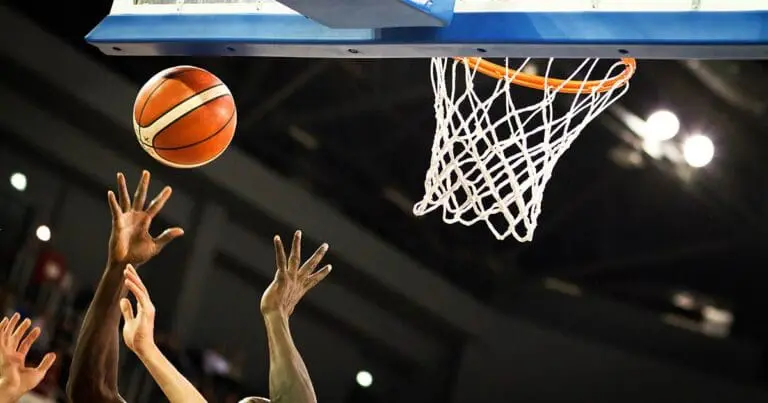Unionized College Athletes: Dartmouth Sets a Precedent for Change

In a historic move, the men’s basketball team at Dartmouth College voted to unionize, marking a significant moment in the landscape of college sports.
This decision showcases the players’ desire for representation and bargaining power, potentially altering the traditional dynamics of athlete management and welfare in collegiate sports.
This groundbreaking vote could set a precedent, inspiring athletes across other universities to consider unionization as a viable option for advocating their rights and interests.
The implications of this move extend beyond Dartmouth, hinting at a possible shift in how collegiate athletes perceive and assert their roles within the broader sports ecosystem.
The potential impact of unionized college athletes on college sports
The potential impact of unionized college athletes on college sports includes athlete rights, athlete compensation, college sport governance, the NCAA’s amateurism model, and college athlete recruitment.
Athlete rights
This unionization can lead to improved conditions, such as better healthcare and scholarship protections for athletes, fundamentally changing the way colleges view and treat their sports participants.
It might also pave the way for discussions about revenue sharing, especially in programs generating significant income.
These changes could democratize the landscape of college sports, making it more equitable for those who contribute to its success.
Athlete compensation
With unionization, the topic of athlete compensation becomes front and center, challenging the longstanding amateur status quo.
This could lead to athletes receiving a share of the revenues they help generate, acknowledging their significant contributions.
Such a shift not only rewards players but also prompts a reevaluation of how collegiate sports operate financially.
College sport governance
Unionization poses questions about the governance and regulatory frameworks governing college sports, particularly with respect to the NCAA.
It could prompt a rethinking of rules and policies to accommodate the new reality of athlete unions.
This shift has the potential to redefine athlete rights, compensation, and the balance of power in collegiate sports.
NCAA’s amateurism model
The move towards unionization directly challenges the NCAA’s long-held stance on amateurism, possibly leading to its redefinition or even dismantlement.
If athletes are recognized as employees who can negotiate their terms, the foundation of amateur athletics could be fundamentally altered.
This presents an opportunity for a more just and fair system that recognizes the effort and contribution of collegiate athletes.
College athlete recruitment
Unionization may revolutionize recruitment practices by making scholarships and compensation part of the negotiation process, potentially offering more attractive packages to prospective athletes.
This could lead to a scenario where colleges compete not just on athletic facilities or academic prestige, but also on the financial and support terms they can offer to athletes.
Consequently, the appeal of college sports could significantly increase among high school athletes, seeing it as a more viable and rewarding path.
Implications of unionized college athletes for the staffing industry
Implications of unionized college athletes for the staffing industry could involve a labor relations skills gap, ongoing training of staff, the need for financial expertise, a focus on athlete wellbeing, and sports management shifts.
Labor relations skills gap
With unionized athletes, colleges may need to hire staff dedicated solely to managing labor relations and negotiating with athlete unions.
This could lead to a new demand for professionals with expertise in labor laws and collective bargaining, creating job opportunities within the staffing industry.
Ongoing training of staff
Additionally, educational initiatives aimed at training staff on effective interactions and negotiations with unionized athletes will become a critical component of college sports administration.
Ensuring staff are well-versed in these areas can facilitate smoother relations and maintain the integrity of sports programs.
The need for financial expertise
In light of potential revenue sharing discussions, additional financial expertise may be required within college sports programs.
This could necessitate the recruitment of specialists capable of navigating complex financial agreements and ensuring equitable distribution of resources.
Focus on athlete wellbeing
The increased focus on player welfare could lead to the creation of new positions such as mental health counselors or nutritionists to support the well-being of athletes. This move signifies a holistic approach to athlete care, extending beyond physical performance to encompass overall health and lifestyle.
Sports management shifts
The broader implications for sports management, coaching staff, and support personnel include a significant shift toward a more collaborative and labor-conscious approach in managing athlete relationships and well-being.
Additionally, this transition may require enhanced training and adaptability among staff to effectively address the evolving needs and rights of athletes within the unionized environment.
The future of college sports unionization
The unionization of college athletes, starting with Dartmouth College’s men’s basketball team, could initiate widespread change across the collegiate sports landscape, altering athlete rights, compensation, and governance.
This movement challenges the NCAA’s amateurism model and could redefine the financial and operational structures of college sports, promoting a more equitable environment for athletes.
Over the long term, these shifts may not only enhance the welfare and professional prospects of college athletes but also transform recruitment strategies and the overall competitiveness of college sports programs.
Such a landscape could mean a new era in college athletics, where athletes have a stronger voice and stake in their contributions to the sports industry.
Looking to hire top-tier Tech, Digital Marketing, or Creative Talent? We can help.
Every year, Mondo helps to fill over 2,000 open positions nationwide.
More Reading…
- The Fediverse Explained: Opportunities, Challenges, and Implications
- The Rise of AI Majors: Transforming the US Job Market
- The Evolution of Hybrid Work and Its Impact on Hiring Trends
- The Tech Layoff Boom: Shifts and Opportunities
- Quantum Computing Explained: Preparing for the Jobs of Tomorrow
- Embracing the Future: The Rise of Big Data-Powered Virtual Assistants
- How To Future-Proof Your Business Through Skills-Based Hiring
- Beyond the Hype: The Current State of Generative AI and its Hurdles
- Tips to Leverage Your Onboarding Process for Employee Retention
- Pay Transparency: What States Have It & Why It’s Important
- Highest Paid Social Media Jobs & Top Salaries
- 10 Tech Jobs That Saw the Highest Salary Growth This Year
- Highest Paid Data Science Roles & Top Salaries



